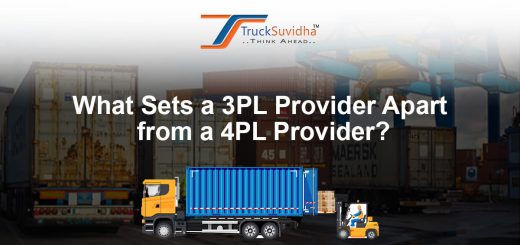Which is better, insourcing or outsourcing logistics?
Logistics is a critical component of any business. For example, 63% of online shippers will quit their carts if shipping charges are too high, and 36% will depart if they believe the order will take too long to ship. End-to-end fulfillment processes are important to any organization’s success, not just e-commerce. This begs the issue for business owners: Insourcing is better to outsource logistics to a professional or try to manage the entire process in-house? Both have advantages and disadvantages; ultimately, your firm will determine the decision you choose and how it works.
The benefits and drawbacks of Insourcing fulfillment
Insourcing fulfillment is controlling the full order fulfillment process within a firm, which includes warehousing, inventory management, picking, packaging, and shipping. Here are some advantages and disadvantages of insourcing fulfillment:
Benefits:
Control and Flexibility:- Insourcing gives businesses more control over the fulfillment process, ensuring that customer service standards and delivery deadlines are followed.
Cost Savings:- Insourcing allows businesses to reduce the extra expenses associated with third-party logistics suppliers.
Brand Image:- By handling the whole fulfillment process in-house, businesses can keep control over the customer experience while also developing a strong brand reputation.
Data & Analytics:- In-house fulfillment enables businesses to collect important data about their fulfillment processes. It can then be leveraged to drive continuous improvement and cost savings.
Drawbacks:
Initial Investment:- Establishing an in-house fulfillment operation necessitates a substantial investment in infrastructure, manpower, and technology.
Scalability:- As a business expands, growing an in-house fulfillment operation can be difficult. Extra investments in space, equipment, and personnel become necessary. Managing a fulfillment operation necessitates specialized knowledge in areas such as storage, logistics, and supply chain management.
Opportunity Cost:- Concentrating on fulfillment processes may distract resources and attention away from a company’s essential business activity. While insourcing fulfillment might give more control and cost advantages. On the other hand, it also necessitates substantial investment and experience. Companies should carefully consider the advantages and disadvantages of insourcing or outsourcing their fulfillment operations.
Is it a good idea to outsource logistics?
Outsourcing your logistics is an excellent approach to simply handing over the entire complex fulfilling procedure to the professionals. If you’re having trouble managing your logistics, outsourcing can be a cost-effective solution. It saves you time and takes a lot of the stress off of running your business on a daily basis.
When you outsource, you immediately save money on warehouse space, labor, and delivery trucks because the third-party logistics provider (3PL) provides all of these services. Your chosen logistics partner will also have established supply chain technology, transportation, and warehouse management systems.
One of the primary benefits of outsourcing your logistics to a reputable third-party logistics provider is that your logistics requirements will now scale automatically with your business. While your company is expanding, you don’t have to worry about hiring more warehouse workers or keeping track of inventory levels. Your logistics partner can do that for you and support your expansion. It will also ensure that any changes to your supply chain are neither costly nor time-consuming.
Also Read:- Logistics Service Provider Contribution to OEMs Energy Transition
Integrating Operational Needs and Organizational Goals for Efficient SCM Strategies
Despite the potential benefits of outsourcing supply chain tasks, businesses must set realistic goals when evaluating external solutions – and this does more than just mean doing a cost comparison between in-house and outsourced models. Transitioning from one model to another demands significant planning and time investment for many organizations. They must also think about how to best align plans with fundamental corporate goals. Most crucially, success is dependent on locating a reliable partner who understands their specific objectives. Also, the success is dependent on any regulatory standards applicable to their sector or market.
Considering Short-Term and Long-Term Goals in Supply Chain Decision Making
Finally, whether firms pick an in-house model or outsourced solutions will be determined by both short-term goals, such as cost reduction or greater efficiency, and long-term goals, such as strategic direction connected to growth plans or risk management methods. Companies may ensure that they get the most value out of their supply chain decisions by examining all aspects of their specific scenario, from operational demands to organizational ambitions.




Recent Comments